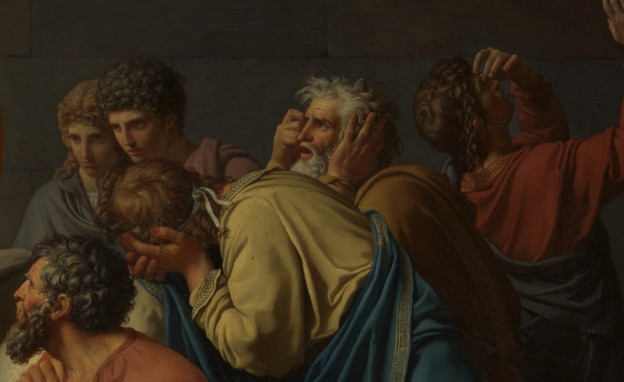It is a terrible thing to experience God’s displeasure and judgement. And yet, despite our sinfulness and our deserving of punishment, God graciously shows his love and affection for us. Through repentance of sin and faithfully seeking God, we enjoy renewed fellowship and the reminder of God’s repeated blessing in our lives and the lives of those who have gone before us.
For Israel, just as the Ark had returned to them, so too they needed to return to God. In 1 Samuel 7, Israel individually and corporately laments their sin, turn away from idols, and follow after God. As a result they experience God’s blessing in their lives, and spiritual blessing and direction from Samuel.
The Ark returned from the Philistines to Israel, and remained at Kiriath-Jearim for twenty years (v.2). As the years went by, the people mourned for their lost relationship with God (v.2).
Samuel, sent by God to lead God’s people, instructed the Israelites to turn from their sins. If they were returning “with all their heart”, they needed to “put away the foreign gods and the Ashtaroth from among you and direct your heart to the LORD and serve him only” (v.3).
This was more than just intellectual and emotional assent. The foreign gods and the Ashtaroth were often associated with fertility of people and land. The “worship” practices associated with these deities involved sexual immorality. How sinfully, delightfully, convenient.
Therefore putting aside these gods meant not only stopping any idolatry, but also sexual immorality. It was turning from a way of life to pursue another way of life; one patterned after following God and his standard of living as revealed in the Law.
It was also to separate themselves from the practices of the world around them, which happily pursued the Baals and Ashteroth and the extracurricular activities associated with it.
If they did so, God promised that he would bless them. In that context, Samuel described this blessing as relief from the Philistines who oppressed them (v.3). Reflecting their lament and godly repentance, Israel turned from the worldly idols and turned to God (v.4).
To recognise this act of repentance, the people of God gathered at Mizpah where Samuel led them in a rite of confession. This involved prayer, fasting, and pouring out of water (perhaps as a symbolic act of cleansing) to God (vv.5-6).
For the Philistines, word that the Israelites were throwing off their gods and turning back to the one true God was not welcome news. They perceived it, perhaps rightly, as an Israelite revolt against their rule. So up they came against Israel, once again, to fight (v.7).
Unlike in Chapter 4 where Israel tried to blackmail God into helping them, this time Israel turned to God in prayer (v.8). Samuel, as their priest, offered a lamb as an offering and cried out to God for Israel’s deliverance (v.9). God heard. God acted, blasting the Philistines into confusion, so in a reversal of fortune the Israelites struck down the Philistines (vv.10-11).
To memorialise the event, Samuel raised a memorial at Mizpah called Ebenezer, or rock of help, because “Till now the LORD has helped us” (v.12). This rock not only pointed to God’s victory at Mizpah, but the long line of salvation experienced by God’s People over centuries.
Added to this blessing was freedom from the Philistines, who no longer entered their lands, and peace with the Amorites (vv.13-14).
The final verses of this text summarise Samuel’s career. Samuel judged Israel, and rotated the place of his religious and political leadership around the lands of Israel (vv.15-17). Unlike the previous judges, some of whom only judged a part of Israel, under Samuel the whole Israel came to be judged under one man.
The twenty years of Samuel’s leadership were years of plodding, rather than drama. That plodding reflects the Christian’s life. While we might have an occasional experience of religious high, that is not the norm.
Notice also the difference when God’s people trusted God by faith, rather than trying to blackmail God into supporting them.The same is true for us. If we trust in God by faith, then we can be sure that God will ultimately vindicate us from among the nations, and completely destroy our greatest enemies, sin and death.
Our trust in God to defeat sin and death is built up when we look at God’s many saving acts in history. Till now the LORD has helped us, by his work in our lives, his care for his church, his saving acts recorded in the Bible. Times like Easter where we especially remember Jesus’ death on the cross and his resurrection are our own “Ebenezer” that remind us of God’s help.
It is not easy to leave a sinful way of life and follow God’s design for life, trusting in him for salvation. But just as God was a rock of help to Israel in ages past, so too is God our rock of help, through Jesus Christ, today and into eternity.


